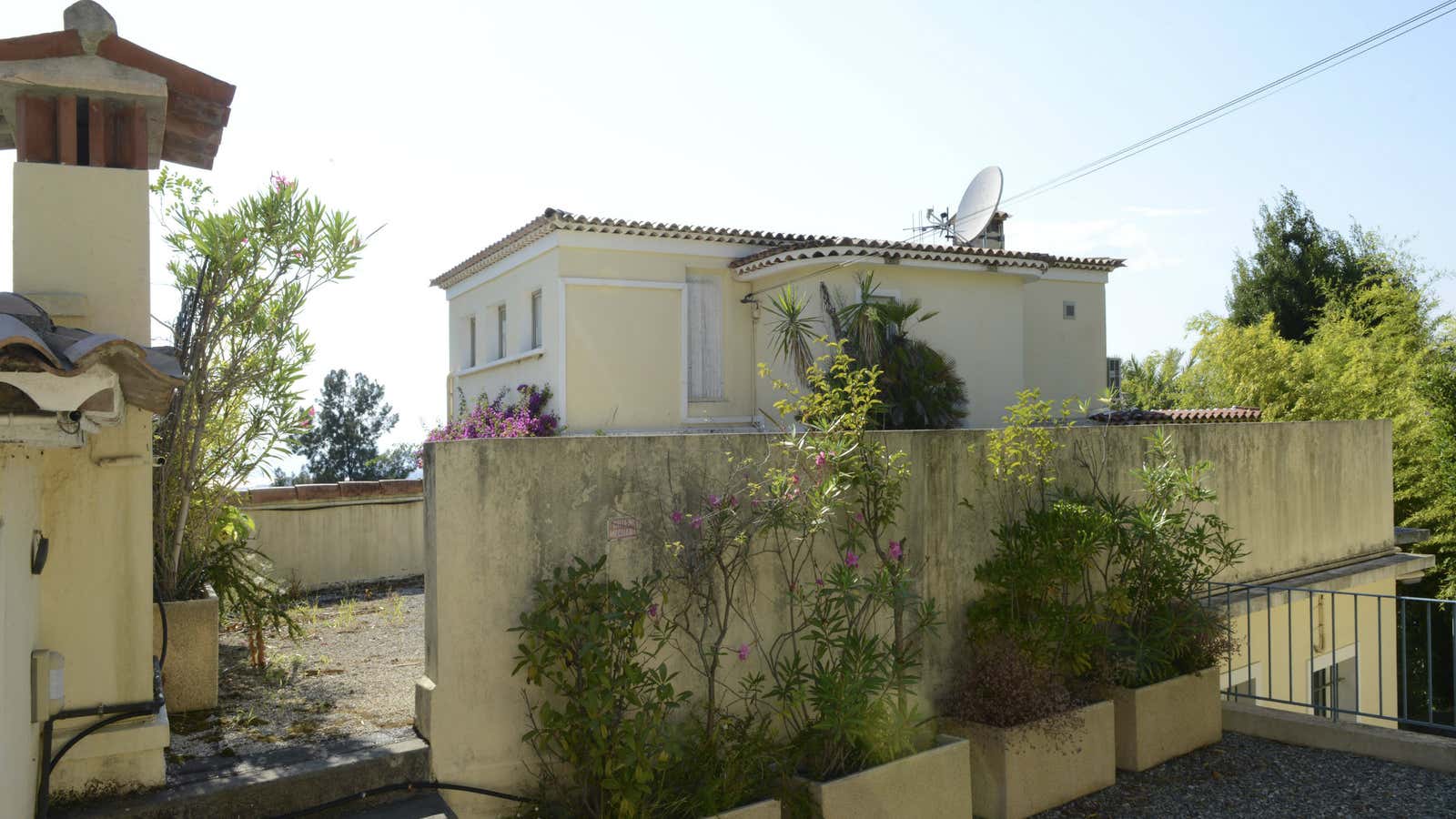Bo Xilai, the former Politburo member accused of bribery and embezzlement, was handed a harsh sentence on Sunday that included a ban from politics and life in prison. But one part of the verdict came as something of a surprise: the Jinan People’s Court’s promised to confiscate a villa in Cannes, France, that is believed to be connected with Bo’s family:
The defendant Bo Xilai’s villa that was obtained through bribery, specifically ‘Villa Fontaine Saint Georges, 7 Boulevard des Pins 06400 Cannes France,’ shall be pursued for recovery and shall be confiscated.
The six-bedroom villa, with a swimming pool and view of the Mediterranean, is worth several million euros and was purchased by Bo’s wife in 2001 with funds provided by businessman Xu Ming, prosecutors said during Bo’s trial. Bo denied having any knowledge of the villa.
As China pursues corruption cases against scores of officials accused of bribery and corruption, the very public pursuit of the Cannes villa is designed to send a message to those who have stashed the fruits of bribes overseas, experts said. “They are saying that they can reach assets anywhere—and that they will,” said Dan Harris, an attorney with Harris & Moure, who specializes in Chinese law.
Other assets that could potentially be seized include a $1.4 million home in Walnut, California. said to be owned by former railway official Zhang Shuguang, who is under investigation for bribery.
Some long-negotiated global anti-corruption measures may be on China’s side. China and France are both signatories to the United Nations Convention Against Corruption, which went into effect in 2005 after years of discussion. Member-nations pledge to provide each other legal assistance and cooperate in extradition and asset recovery when citizens are convicted of corruption:
Following a request made by another State Party having jurisdiction over an offense established in accordance with this Convention, the requested State Party shall take measures to identify, trace and freeze or seize proceeds of crime, property, equipment or other instrumentalities….for the purpose of eventual confiscation.
Specificity is important. The UN treaty asks that the state requesting property be seized outside its own borders provide “a description of the property to be confiscated, including, to the extent possible, the location and, where relevant, the estimated value of the property.”
Earlier this year, the Wall Street Journal took a close look at the villa’s legal owner, a French company called Residences Fontaine Saint Georges that purchased it in 2001, and is in turn “controlled by two firms based in Luxembourg, whose legal representatives are three local lawyers.”
British businessman Neil Haywood, whose murder eventually led to Bo’s downfall, was one former manager, the Journal added.
The UN treaty could be complicated by China’s domestic laws. Qiao Xinsheng, a law professor with Zhongnan University of Economics and Law, wrote in China’s Legal Daily (link in Chinese) earlier this month that prosecutors can bring lawsuits to confiscate suspects’ property only if they are on the run or dead one year after they are charged with corruption.
Ivy Chen contributed reporting and Chinese-language translation.
